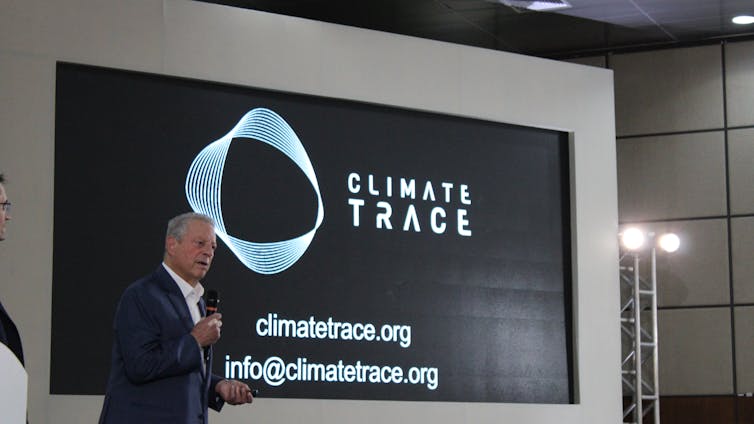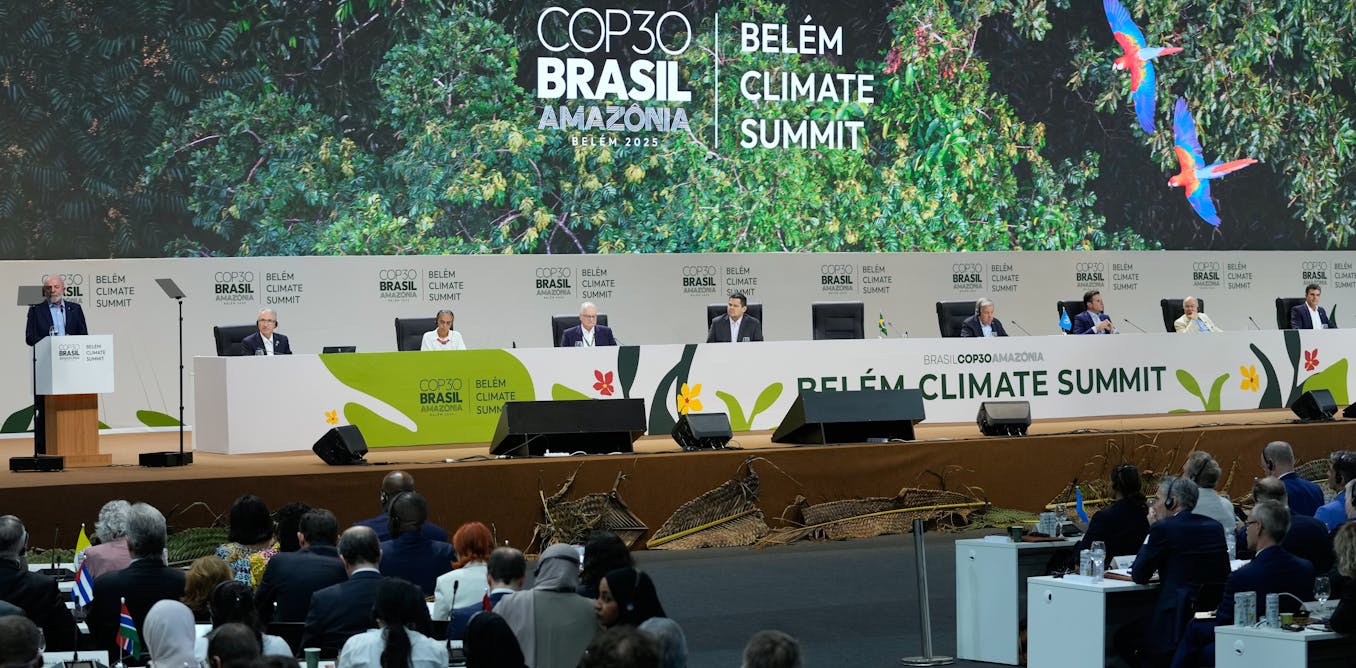We live in a time often characterized as a polycrisis. One of those crises is human-caused climate change, an issue currently being discussed by delegates at the COP30 climate talks in Belém, Brazil.
Another is disinformation, much of which has been focused on climate change. A third potential crisis comes from the implications of artificial intelligence for society and the planet.
When it comes to AI and climate change, there are a variety of opinions, from the optimistic to the pessimistic and the skeptical. Given the overarching concerns about environmental harms of AI, it is surprising to some that AI is front and centre at COP30, which I am currently attending.
Both COP30 President André Aranha Corrêa do Lago and Simon Stiell, executive director of the United Nations Framework Convention on Climate Change, have noted the importance of AI and other aspects of technology for addressing climate change.
While there has been some consideration of AI in addressing climate change at previous COPs, COP30 is the first conference where AI has been formally integrated as a central theme in the conference agenda.
AI at COP30
On the first day of COP30, “science, technology and artificial intelligence” was explicitly listed as one of the key themes. Initiatives included the Green Digital Action Hub, a global platform to drive a greener, more inclusive digital transformation.
Additionally, there was a session introducing the AI Climate Institute. A key goal of the AI Climate Institute is to enable Global South countries to design, adapt and implement their own AI-based climate solutions.
In these and other forums, there were discussions about digital decarbonization technologies and advances in data transparency for emissions. Proponents argued these initiatives were designed to help countries harness technology to meet their climate goals.
(David Tindall)
When it comes to AI and climate change, there is a tendency for people to think about the increased environmental and climate change harms that AI will bring. In this regard, there has been a lot of recent media coverage on the potential of increased carbon emissions, water use and environmental damage as a result of mining for critical minerals.
A key issue is the emissions produced by data centres. As many commentators have said — including Stiell — data centres need to have electrical power sources if AI is to be aligned with climate action.
How is AI relevant to addressing climate change?
AI is already being applied in climate change mitigation. At COP30, former United States vice president Al Gore gave a presentation about the role of Climate TRACE in addressing climate change. Climate TRACE is a non-profit coalition of organizations that have been developing an inventory of exactly where greenhouse gas emissions are coming from to help governments, organizations and companies to reduce or eliminate these emissions.
Climate TRACE uses satellite imagery, remote sensing, artificial intelligence and machine learning to estimate emissions. In his presentation, Gore demonstrated visual examples in a slide show.
AI can play a role in reducing emissions in a number of ways. One, as noted above, is by tracking emissions. Another is by making energy systems more efficient and thus reducing emissions through energy savings.
Reducing energy use and emissions were not the only type of efficiencies discussed at COP30. Conservation of water use and increased efficiencies in agricultural production were also highlighted. An example is the AI for Climate Action Award that was given to a team from Laos this year for a project using AI for farming and irrigation.

(David Tindall)
Climate adaptation
AI has the potential to make a big impact in the area of climate adaptation. Key issues were discussed at COP30 at a session called Smarter than the Storm: The Future of AI in Forecasting and Proactive Responses to Build More Resilient Communities.
Scientific research has demonstrated that machine learning can assist local governments in their decisions about options for climate adaptation. AI can be an integral part of an early warning system.
It can be used to predict floods using sensor data, predict wildfires using satellite and weather data, monitor social media for disaster response and identify areas at risk of landslides.
AI tools involved in these various processes include machine learning, deep learning, natural-language processing and computer vision. Consistent with overarching concerns at COP30 about the importance of social and climate justice, proponents of community AI applications emphasized the need for transparency, affordability of data and AI systems and the sovereignty of community data.
Dangers of disinformation
Climate disinformation is a key type of disinformation in contemporary society. AI can either be a source or a counter to climate disinformation.
At COP30, disinformation and climate denial was mentioned in a number of contexts, including by Brazilian President Luiz Inácio Lula da Silva. One key event on this topic was the announcement of a Declaration on Information Integrity on Climate Change, which a number of countries endorsed.
AI can be considered a triple-edged sword. Unregulated expansion of AI has the potential to do enormous environmental harm and magnify misinformation and disinformation.
However, principled development of AI, powered by clean energy sources, also has the potential to significantly reduce carbon emissions, provide early warning to communities of climate threats, reduce the costs of adapting to a changing climate and enhance our understanding of climate change.

The post “Artificial intelligence is front and centre at COP30” by David Tindall, Professor of Sociology, University of British Columbia was published on 11/19/2025 by theconversation.com





































Leave a Reply